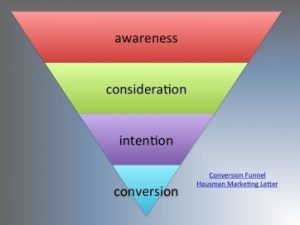
Mindfulness is one of the most powerful ways to have more emotionally intelligent employees.
Having emotionally intelligent employees is important because they’ll treat their coworkers and your customers better.
Work is becoming a frantic place, with many people expected to do more with less.
Numbers, metrics, KPIs, OKRs, stock prices, balance sheets…it never ends.
But what about the human side of business? What about treating someone with respect? What about empathizing with people to understand where they come from?
Having your employees be more mindful and more aware could be the secret to your success.
Mindfulness has gained a lot of popularity in recent years, but unfortunately, not every company is on board. They see it as a hippie activity, but it’s so much deeper than that.
Many companies like Google and Facebook offer mindfulness training to their employees because they understand the benefits.
Its benefits are so powerful, that every leader should be on board. It has been shown to improve every area of our lives, from stress to creativity.
Aetna, another company that offers mindfulness training, estimates that each employee who participates gains an hour of productivity per week.
Here’s a video of Aetna’s CEO talking about how mindfulness improves his employees’ performance. We need more leaders like this in the world.
According to an article in the Harvard Business Review, mindfulness is now a “must have” for leaders.
From the article:
“Neuroscientists have shown that practicing mindfulness affects brain areas related to perception, body awareness, pain tolerance, emotion regulation, introspection, complex thinking, and sense of self. While more research is needed to document these changes over time and to understand underlying mechanisms, the converging evidence is compelling.”
“Mindfulness should no longer be considered a “nice-to-have” for executives. It’s a “must-have”: a way to keep our brains healthy, to support self-regulation and effective decision-making capabilities, and to protect ourselves from toxic stress. It can be integrated into one’s religious or spiritual life, or practiced as a form of secular mental training. When we take a seat, take a breath, and commit to being mindful, particularly when we gather with others who are doing the same, we have the potential to be changed.”
8 Powerful Benefits Of Mindfulness
If you care about the wellbeing and performance of your team, here are eight powerful benefits of mindfulness that you need to know about.
It Lowers And Helps You Recover From Stress
Not only does it lower stress in the immediate term, but it can help us recover from stress in the future.
Research has shown that mindfulness will help us feel less stressed, and it will lower the levels of cortisol (the stress hormone) in the body.
It Makes You More Compassionate
Being compassionate is an important skill to have when dealing with anyone, especially customers.
A little bit of mindful meditation made people more willing to help others, according to one experiment.
It Improves Memory
It can help your team be more productive and work smarter. Mindfulness has been shown to improve our memory because it makes us more present.
It helps us focus on the right things instead of having your mind wander all the time.
It Helps You Focus
This is such a powerful benefit for any leader trying to get the most out of their team.
Mindfulness has been shown to improve concentration and reduce multitasking, allowing your employees to focus on the right things.
It Makes You More Creative
Think of the possibilities if you have a team where everyone is more creative.
Mindfulness has been found to promote creativity, another reason why mindfulness training is important.
It Helps You Not Get Sick
In one study, people that regularly practiced mindfulness took less sick days from work and when they were sick, experienced less symptoms and recovered quicker.
Imagine having your team take less sick days, you’d be saving a ton of money on lost productivity.
It Reduces Your Unconscious Bias
In a 2015 Central Michigan University study, participants listened to either a mindfulness or a control audio. In the study, mindfulness meditation caused an increase in state mindfulness and a decrease in implicit race and age bias.
It Improves Decision Making
Researchers at UCLA have found that long-term meditators have larger amounts of something called gyrification in the brain.
Scientists suspect that gyrification is responsible for making the brain better at processing information, making decisions, forming memories and improving attention.
Imagine if everyone on your team was consistently making better decisions.
Mindfulness Case Study At Work
Researchers in Canada found that at a call center, when their employees practiced mindfulness, client satisfaction increased.
Each workday for five weeks, 43 full-time call center employees in Canada listened to 10 minutes of guided meditation before work and five minutes after lunch on their computers.
As time went on, their stress, anxiety, depression, negative emotions, and fatigue all dropped. These changes were directly linked with mindfulness, so the more mindfulness increased, the more stress would decrease.
As part of the study, the researchers also called some of their customers (people who call into the call center) and asked them to fill out surveys rating their satisfaction with the service.
As you might expect, satisfaction went up as the mindfulness increased.
Even more interesting was that client satisfaction had been stagnant for years, and they tried many things to increase it without any success.
Mindfulness really is a miracle.
How To Practice Mindfulness
The most important thing to remember is that being mindful is about being more “present”. It’s about being more aware of your surroundings and looking at the world from a more “neutral” view.
The good news is that it really doesn’t take a lot of work to practice mindfulness, and like you just read, the effects are unreal.
While it doesn’t take long to do each day, you need to be consistent and build it up as a habit.
Here are a few ways you can practice mindfulness at work.
Take Two Minutes To Breathe
It seems simple and trivial, but this is by far the best and easiest way to practice mindfulness at work.
If your desk is too noisy, walk somewhere quiet and take two minutes to close your eyes, breath, and focus on your breathing. This will calm you down and make you much more productive.
Ideally, you can do this a few times throughout the day.
Take Frequent Breaks
Taking regular breaks throughout the day has been shown to improve your productivity and creativity.
It’s also not good to push through and try to get so much done. Acting like that leads to increased stress, which is exactly what you don’t want.
Instead, use something like the Pomodoro technique where you work for 25 minutes and then take a 5-minute break. During that 5 minute break, make sure to get up, walk around, and you can even do those breathing exercises mentioned earlier.
Unplug
A huge part of being more mindful is finding a good work-life balance.
Try your best to unplug whenever you can (evenings and weekends) and spend time with family and friends.
Personally, I’ve removed all work applications from my cell phone and I try my best to stay off of my laptop after 6pm.
I’ve found that consciously unplugging and taking time to relax and not think about work makes me less stressed and happier to come to work the next day.
Don’t Be Scared Of Stress
In an incredible study done at the University of Wisconsin-Madison, researchers asked 30,000 people the same question: “Does the perception that stress affects health matter?”
The researchers found that people experiencing high levels of stress but who believed that stress was good for them had among the lowest mortality rates. Whereas highly stressed people who believed that stress was bad for their health had the highest chance of dying.
Remember, a little stress and a little hustle is okay for you. Instead of being scared of it, use it to motivate you. Remember that you can do anything you put your mind to, just be confident.
Practice Gratitude
You need to make a conscious effort to be grateful for what you have and take some time to think about those positive things in your life.
We have what’s called a “negativity bias”, which means that we have a tendency to naturally focus and notice more negative things in our life.
Practicing gratitude regularly will help you fix this.
Develop A Growth Mindset
I’ve mentioned the importance of developing a growth mindset before.
The more I learn about it, the more I realize that cultivating a growth mindset, where you look at stressful events as an opportunity to grow instead of being fixed in your ways, is the key to growing as a person.
Mindfulness and growth mindsets go together perfectly.
Do You Practice Mindfulness At Work?
Has it helped you at all? Share your experiences in the comments below!
Business & Finance Articles on Business 2 Community(39)








